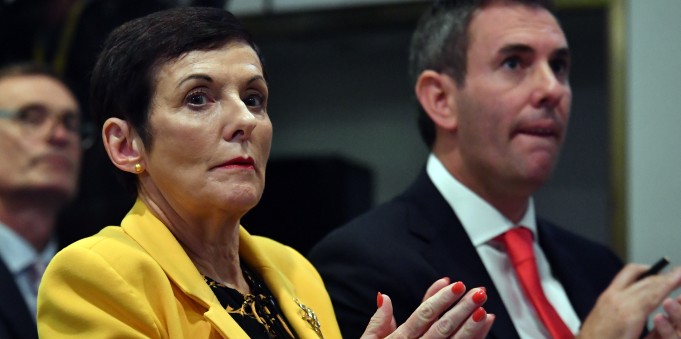
Former Australian small business ombudsman Kate Carnell. Source: AAP Image/Mick Tsikas.
Small business ombudsman Kate Carnell has urged the Morrison government to push back a planned paring back of JobKeeper payments amid the imposition of stage four COVID-19 restrictions in Melbourne.
Thousands of small businesses in Melbourne will have just two weeks after trading restrictions expire in September to get back on their feet before the $86 billion wage subsidy scheme is scaled back and commercial rent deferrals expire.
Carnell says businesses aren’t going to be “anywhere near ready” to be weened off JobKeeper payments or begin paying back deferred rents, calling on the federal government to reassess its plans in light of Victoria’s second wave of coronavirus infections.
“Businesses are gutted, they’re just feeling like, what’s the point?
“They need to have the confidence that the government is going to continue to back them,” Carnell tells SmartCompany.
Treasurer Josh Frydenberg has come under pressure in recent days to tweak JobKeeper eligibility requirements to ensure businesses in Melbourne retain access to wage subsidy payments beyond September.
But the federal government has not committed to delaying a planned paring back of the program, which will see payments decrease from $1,500 a fortnight to $1,200 for those who were working more than 20 hours a week in February.
Prime Minister Scott Morrison sought to kick the can down the road when asked about the prospect of extending the $1,500 payment on Monday.
“We’re talking about something two-and-a-half months from now,” Morrison said.
“We’re into August, it’s the end of September. So we’re talking about something many weeks from now, and we’ll be making further assessments of that.”
The federal government is currently working through options to change JobKeeper eligibility rules so that Melbourne businesses don’t fall through the cracks in their eligibility for the second phase of the scheme.
But nothing has been said yet about commercial tenancy protections which have allowed businesses to defer half of their rent bills in recent months under agreements with their landlords, set to expire on September 27.
Retailers in Melbourne, now forced to close their stores for six weeks, face having to front up their entire rent bill from October, as well as beginning to pay back any deferred amounts owed to landlords.
Carnell argues the federal government has to “stop setting timelines” for when small businesses will be back on their feet and instead take a more dynamic approach to supporting SMEs through the coronavirus crisis.
“I understand the reasons they have around budgets and so on, but they really need to make it clear the government will continue to provide support for as long as it takes,” she says.
NOW READ: What’s happening with JobKeeper? Morrison flags tweaks as Victorian businesses shut down


COMMENTS
SmartCompany is committed to hosting lively discussions. Help us keep the conversation useful, interesting and welcoming. We aim to publish comments quickly in the interest of promoting robust conversation, but we’re a small team and we deploy filters to protect against legal risk. Occasionally your comment may be held up while it is being reviewed, but we’re working as fast as we can to keep the conversation rolling.
The SmartCompany comment section is members-only content. Please subscribe to leave a comment.
The SmartCompany comment section is members-only content. Please login to leave a comment.